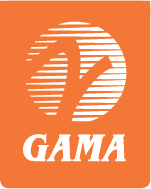|
Business Aviation’s First Sustainability Summit Highlights Focus Areas for Sustainable-Fuels Growth
Washington, D.C. – After a first-of-its-kind sustainable aviation fuels (SAF) summit that concluded today, business aviation leaders committed to redouble their focus on fostering the large-scale production and widespread adoption of SAF.
The summit was the latest in a series of efforts by the industry to encourage greater production and use of SAF, a cleaner-burning fuel that can reduce net lifecycle carbon emissions 50% or more compared to conventional jet fuel, and would help the industry go further, faster in reducing business aviation’s already low carbon footprint.
Specifically, the event focused on the following efforts:
- Encouraging federal and state policymakers to consider legislative incentives to help foster SAF use, and working with them to examine whether there are existing policies slowing the development of the SAF market.
- Further development of market-based programs, such as “book-and-claim,” which allows operators to purchase SAF, even where it is not available at the airport from which they are flying.
- Finding ways to further expand the infrastructure needed to meet SAF demand.
The summit gathered operators, legislators, regulators, fuel suppliers and others to determine how best and how quickly the production, supply, demand and use of SAF can be accelerated.
The sessions featured perspectives from government leaders, including Joel Szabat, Acting Undersecretary for Transportation Policy, U.S. Department of Transportation; Rep. Rick Larsen (WA-02), Chair, Subcommittee on Aviation, U.S. House Committee on Transportation and Infrastructure; and Kevin Welsh, Executive Director, Office of Environment & Energy, Federal Aviation Administration. The summit included several major announcements from leading business aviation companies for promoting SAF use.
The organizers thanked platinum sponsors Bombardier Aviation, Embraer, Gulfstream Aerospace Corporation, and gold level sponsor Avfuel, for their generous investment toward the Virtual Summit, and their continued commitment toward this important initiative.
The event was organized by the Business Aviation Coalition for Sustainable Fuel, which includes the Commercial Aviation Alternative Fuels Initiative (CAAFI), European Business Aviation Association (EBAA), General Aviation Manufacturers Association (GAMA), International Business Aviation Council (IBAC), National Air Transportation Association (NATA) and National Business Aviation Association (NBAA).
The SAF Coalition’s work is supported by a steering committee that includes dozens of aviation businesses, representing every point in the SAF development-and-supply chain.
At the summit’s conclusion, coalition stakeholders provided their assessments.
CAAFI Executive Director Steve Csonka said, “I believe the summit clearly highlighted two key messages. First, after succeeding with all the foundational work on an SAF strategy, the entire civil aviation industry is clearly ready and willing to expand use of SAF, but it is in short supply, due to some fundamental challenges typical of any developing market. Secondly, policymakers can assist by creating stable incentivizing policies, at both state and federal levels, or addressing policy bias, which currently impedes SAF expansion, and favors renewable diesel. We look forward to continued engagement on the topic.”
EBAA Secretary-General, Athar Husain Khan, said, “The vital question for the future of the business aviation industry is: how can we facilitate the transition to a more sustainable society? This summit shows that, despite being hard hit by the COVID-19 crisis, business aviation is more committed than ever to reducing its environmental impact and tackling the urgent threat of climate change.”
GAMA President and CEO Pete Bunce said, “This summit brought general and business aviation stakeholders together to accelerate momentum and reaffirm commitments towards achieving our environmental sustainability goals. The manufacturing community continues to lead by example through coordinated sustainability initiatives which have a direct impact on reducing carbon emissions. We look forward to helping spur the increase in supply of, and demand for, sustainable aviation fuels.”
IBAC Director General Kurt Edwards said, “This summit was another concrete demonstration of our industry’s commitment to increase the use of SAF as a critical component of efforts to meet our long-term goal of cutting in half our carbon emissions by 2050, relative to 2005 levels. Interest in using SAF among business aircraft operators is clear and, through events like this Summit, the SAF Coalition is showing leadership through collective action involving all stakeholders in the value chain to encourage its availability and use in greater quantities.”
“With this summit, we have taken a key next step to build upon the tremendous progress we have made on sustainability in just the last two years,” said NATA President and CEO Tim Obitts. “We are focused on accelerating SAF’s adoption and use, which requires us to grow supply and demand. This week’s discussion highlighted ways for us to do just that.”
NBAA President and CEO Ed Bolen said, “This summit is about more than fuels – it’s about the future, and the way we think of sustainability in the years to come. Our industry has always had innovation and a pioneering spirit as its cornerstones. We’ve reaffirmed that visionary outlook with this forward-looking set of objectives.”
The summit built upon previous industry initiatives aimed at promoting SAF use, including the first-ever public demonstration in January 2019 at California’s Van Nuys Airport – which highlighted the fuels’ viability, safety and ability to reduce aviation emissions. That demonstration was followed by a similar events in Europe and the U.K.
In January 2020, the SAF Coalition announced two new carbon-reduction initiatives with the World Economic Forum that made SAF available for aircraft departing the event in Davos, Switzerland and initiated a book-and-claim program.
The coalition recently released Fueling the Future, an educational and informational resource about the practicalities of SAF development, industry adoption, and pending expansion of supply and use, primarily from the perspectives of the business aviation community. The guide describes in detail the pathways available to greater SAF availability.
More information about the SAF Coalition is available at futureofsustainablefuel.com.
# # #
|






 Arts and Entertainment
Arts and Entertainment Business and Industry
Business and Industry Computer and Electronics
Computer and Electronics Games
Games Health
Health Internet and Telecom
Internet and Telecom Shopping
Shopping Sports
Sports Travel
Travel More
More